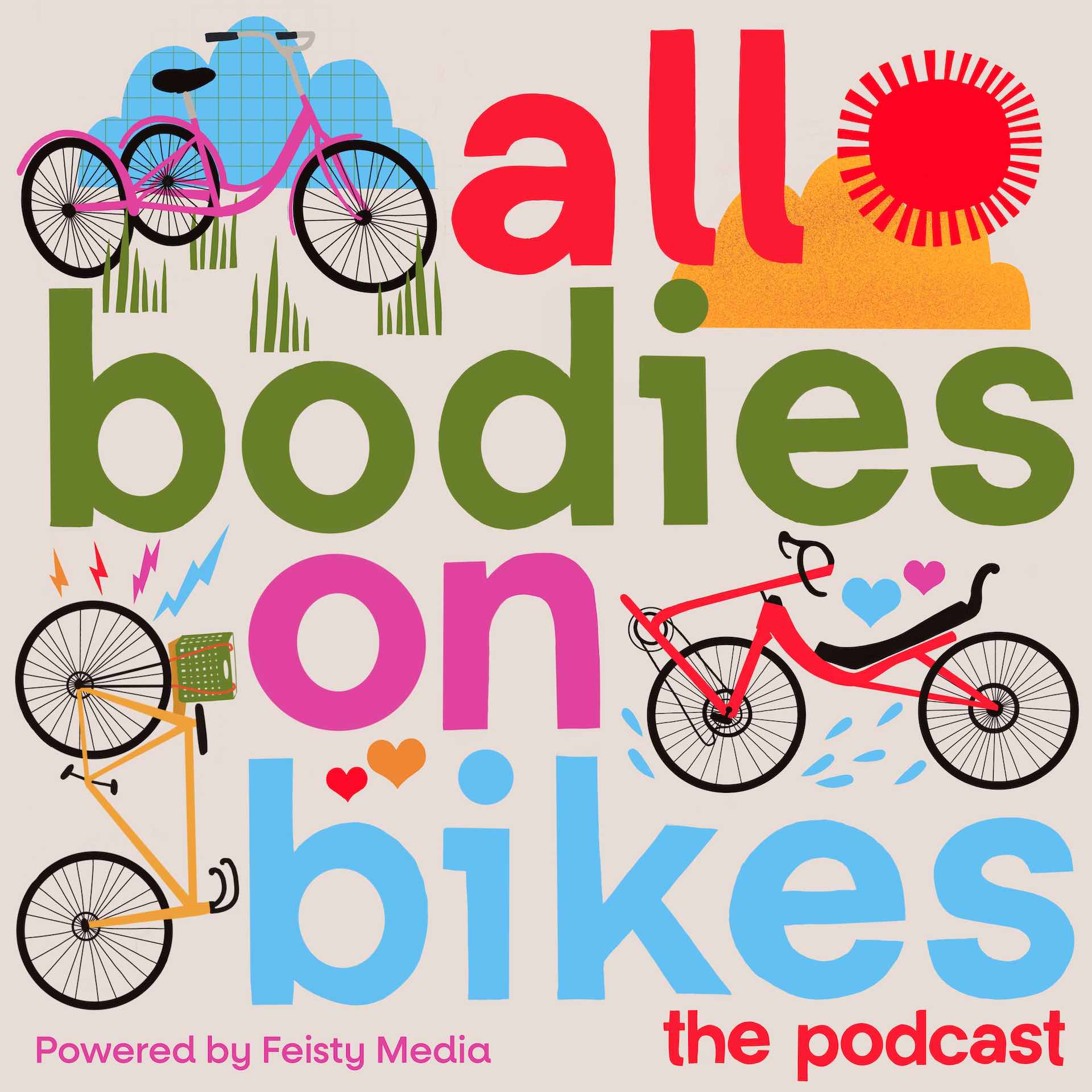March 26, 2020
Living in the Moment in Spain
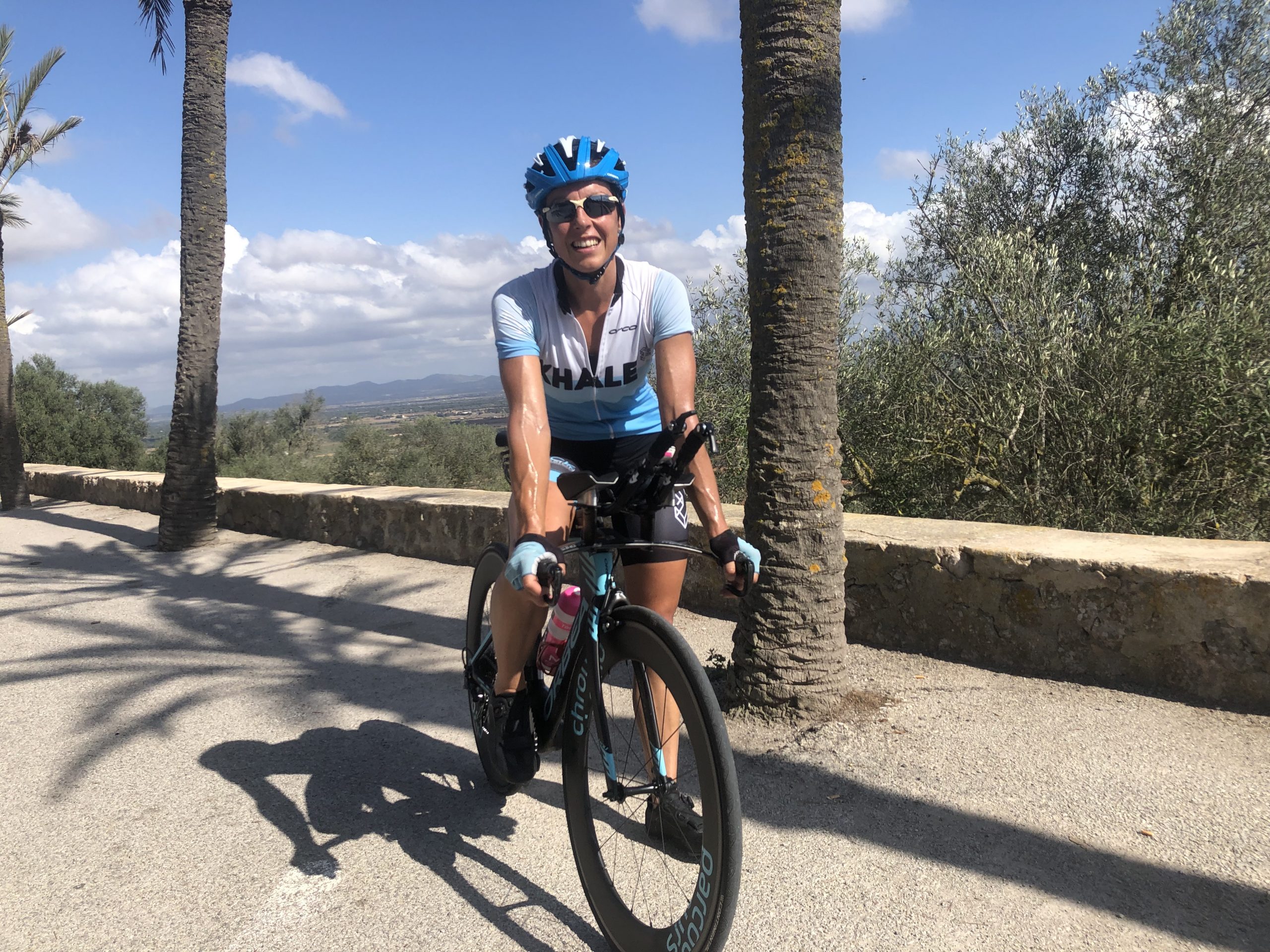
During an unprecedented time in history, we caught up with pro triathlete and civil engineer, Caroline Livesey who is residing in Spain during the COVID-19 outbreak. Caroline gives us an inside view of her life under quarantine and how her day-to-day as a professional athlete has shifted under lockdown.
By: Taylor Mahan-Rudolph
Give us an update on the conditions in Spain. I understand the country is under full lockdown and everyone must stay inside. Can you give us the specifics on what that means for daily life as well as life as a professional triathlete? Are you allowed to go outdoors? Can you leave your house for any reason if it’s required for your profession?
Spain took national action against the virus after it spread quickly following multiple entry points from people returning from Italy, Iran and Germany. It seems like every Government around the world is making different decisions regarding the best course of action to take; when to instigate lock down measures and what they should be. Spain responded fairly quickly, although I am sure in retrospect we will all look back and realise that more should have been done sooner in every country. By 7th March regional lockdowns started in the worst hit areas, and by 14th March we were in nationwide lockdown.
Here that means real lockdown, not “stay at home unless you fancy meeting your friends for coffee” lockdown. On the first day the police made that clear, stopping runners and cyclists even if they were alone and sending them home. They are fining people who were out and about with no reason 600 Euros. There are no exemptions, ask Dave McNamee (3rd in Kona twice) who is on Spanish lockdown just over the water in Girona. He is posting some pretty funny updates on twitter. The rule is that you are allowed out of your house only to go to the shops for essential food supplies. Food stores and pharmacies are open, and some places of work are still functioning, but otherwise everything is closed.
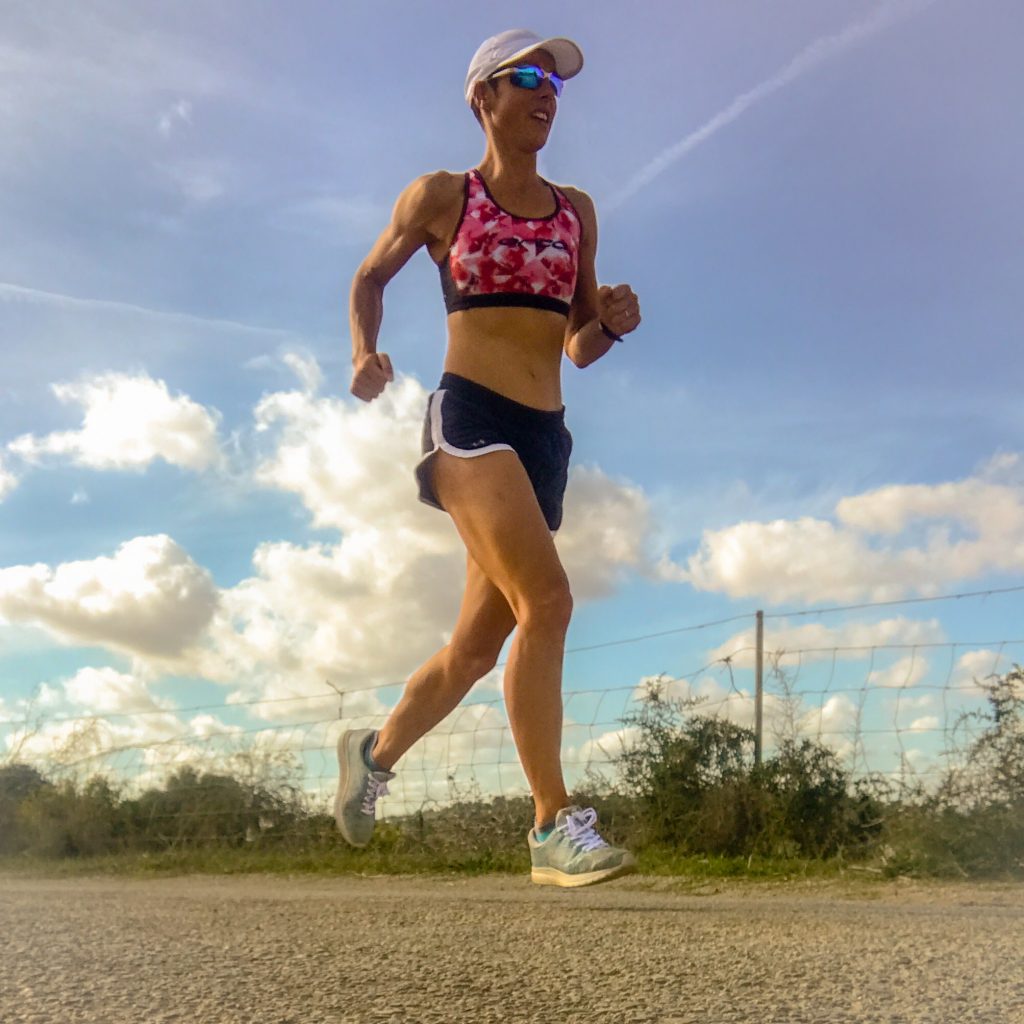
How have you modified your training? Are you sticking to just trainer riding & treadmill running? Are you still doing a normal training load or have you scaled things back?
My husband Mark (also a triathlete) and I decided on day 1 that we needed to stick to a routine. Routine is something we both enjoy anyway and in times of uncertainty like this it is essential to have something to lean on. With no races on the horizon anytime soon we had a clean slate to set up a training plan. I set some totally new goals for myself, and put together a programme which I know will keep me occupied for the weeks to come. It honestly doesn’t feel like I have masses more time on my hands, and this week has flown by.
We are lucky to have a turbo, treadmill and some kettlebells in the house so it is not difficult to have some variety, and to stick to twice daily training sessions. We are doing circuit training together a few times a week, and varying these sets between whole body workouts, upper body and core, and leg overload. Training volume has clearly had to drop considerably (from 25-30 hours normally to 17 this week), but where volume drops intensity can increase and that opens up a whole world of potential gains.
In the absence of traditional triathlon training have you added anything extra? For example, have you added more strength training to compensate for reduced swimming?
I have always been a massive advocate of gym work, and even more so after reading ROAR (ed note: by Dr. Stacy Sims) a couple of years ago (and pretty much every month I re-read some of it). So the number of sessions in the “gym” (spare room) I do each week has increased from 3 to 5, but the amount of weight I can lift has dropped as we only have a maximum 15 kg kettlebell. But there are so many brilliant resources out there for effective strength work which doesn’t need too much equipment and I know I am going to see some great strength gains in this period of lockdown. One of my favourite people for awesome strength and mobility advice and routines is @coachgretchenmeyers on IG. She combines functionality and mobility with really testing exercises that sometimes tax the brain as much as the body. For rehab another of my recommendations is @theptinitiative who has exercises for almost any type of injury or pain you can imagine. Now is a great time to work on your weaknesses, and for me that means SIJ, pelvis and lower back strength and mobility.
Personally I don’t believe that you can maintain swim fitness without swimming so I am not going to worry about that until we can swim again. As I always tell my athletes when they are injured, my advice is to focus on what you can do and not what you can’t.
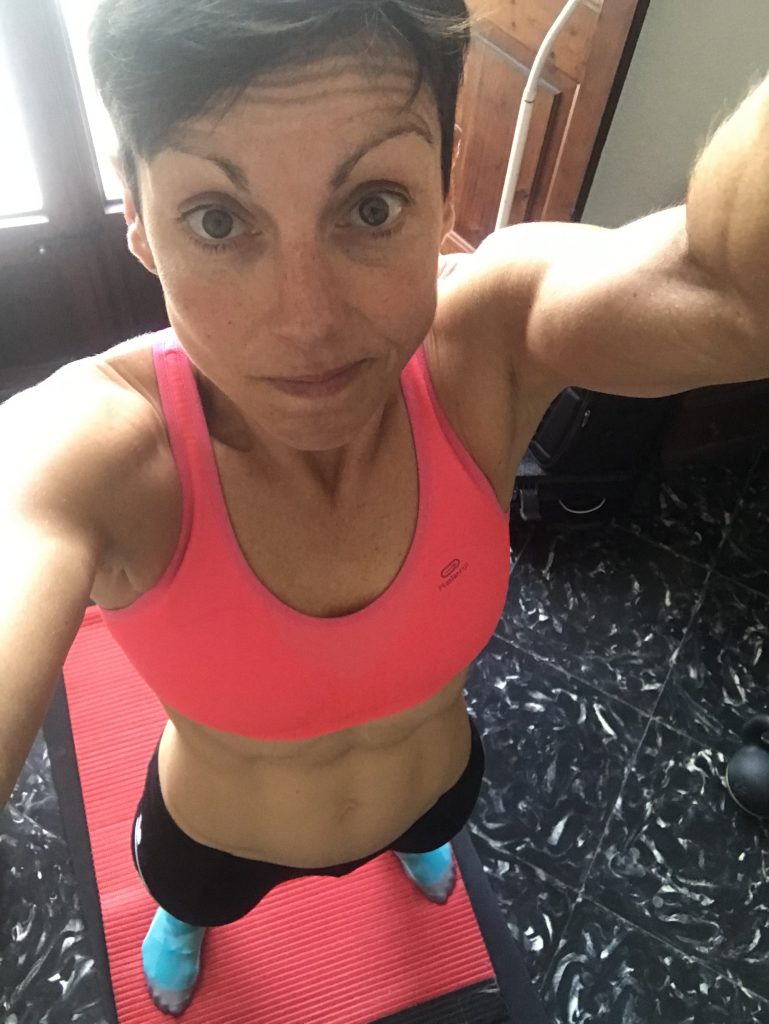
In what other ways has your life as an athlete been impacted? Are you able to get food/nutrition/training supplies normally? Or, have you had to introduce alternative food options out of necessity? If so, how have those changes in nutrition affected your training?
Here the shops are stocked normally with food and there was no panic buying. I love to cook so I am making the most of a bit more time to try new recipes and enjoy creating in the kitchen.
While our athletic lives are shifted right now, there are obvious real impacts to our social, emotional and mental lives as well. Do you feel like your mental state has been affected by this situation? How are you staying positive?
With 10 years military experience before I turned PRO I can honestly say I have been through a lot worse. I am an inherently positive person and am also mentally very stable and pragmatic, so I have not been mentally impacted much at all by this situation. People are adaptable, and once we start to focus on what we have in our present, what we can do, and how we can impact the people around us (online!) in a positive way I think it’s easy to deal with. I understand there are going to be people going through incredibly tough times with businesses and family worries, but I have two bits of advice. Use the extra time you have in your life (for example that hour you would normally be commuting) in a targeted way to learn something. Everyone has things that they have always wanted to learn – now is the chance to make it happen. And secondly it’s super important to make sure that you are not over consuming social media and mainstream media about coronavirus. It is good to be informed from trustworthy sources. But how is it of benefit to read constantly about panic shopping, people dying, job losses and educational woes? Anyone would be affected by a constant stream of negative information coming at them through their phones. So be aware of what you are reading, and be aware of the “what if” voices in your head. Live in the moment, make the best use of your time and connect with people that you love (on video chat) more than you have previously. Now is the time to use that amazing tool to our advantage and stop people feeling isolated when they are isolated.
What is the thing you miss most during self-isolation?
The thing I miss the most has not changed. My step-daughter is in the UK, and I always miss her a great deal. It is hard not knowing when we will see her next, but on the plus side we are talking more on Facetime and staying connected.
Other than that though – I miss riding my bike. In the hills. On beautiful Mallorcan roads, under the sun.
Has anything been unexpectedly awesome?
Speaking a lot more to all my friends on video chats has been wonderful.
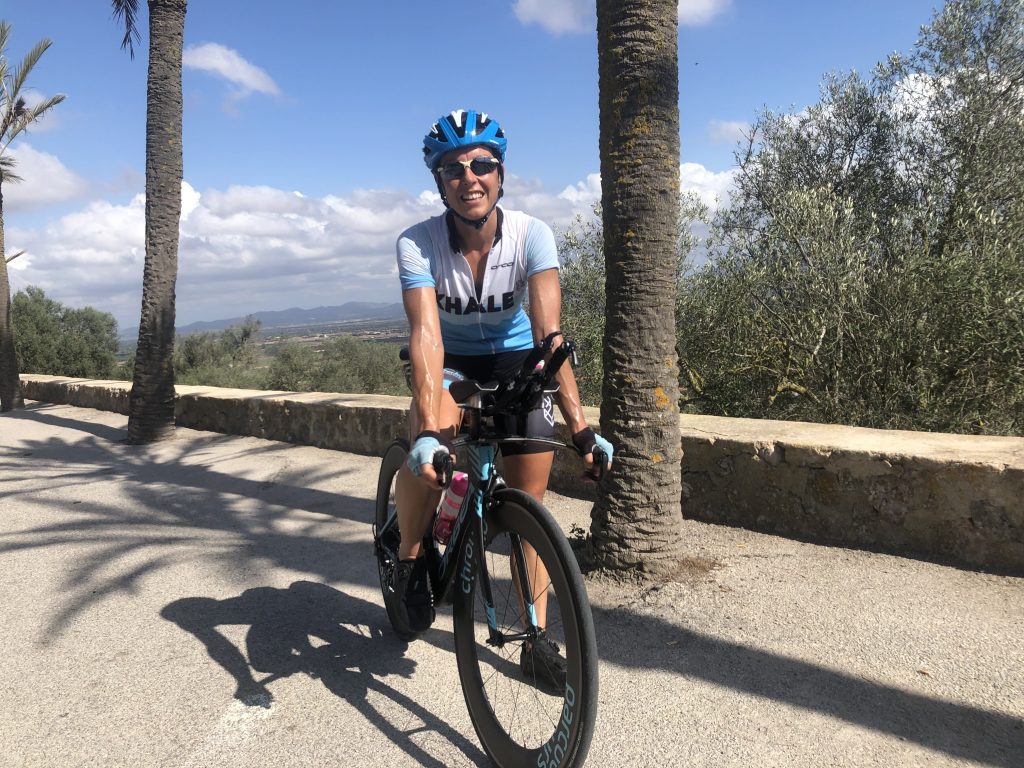


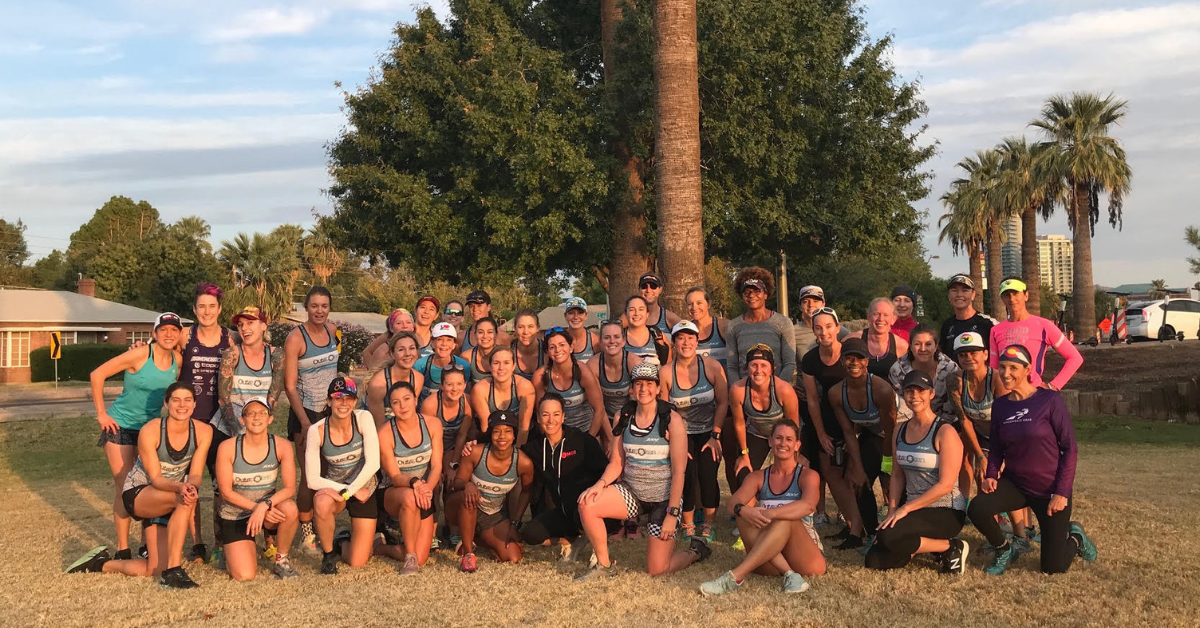 Outspoken Women in Triathlon Summit Returns Bigger than Ever
Outspoken Women in Triathlon Summit Returns Bigger than Ever 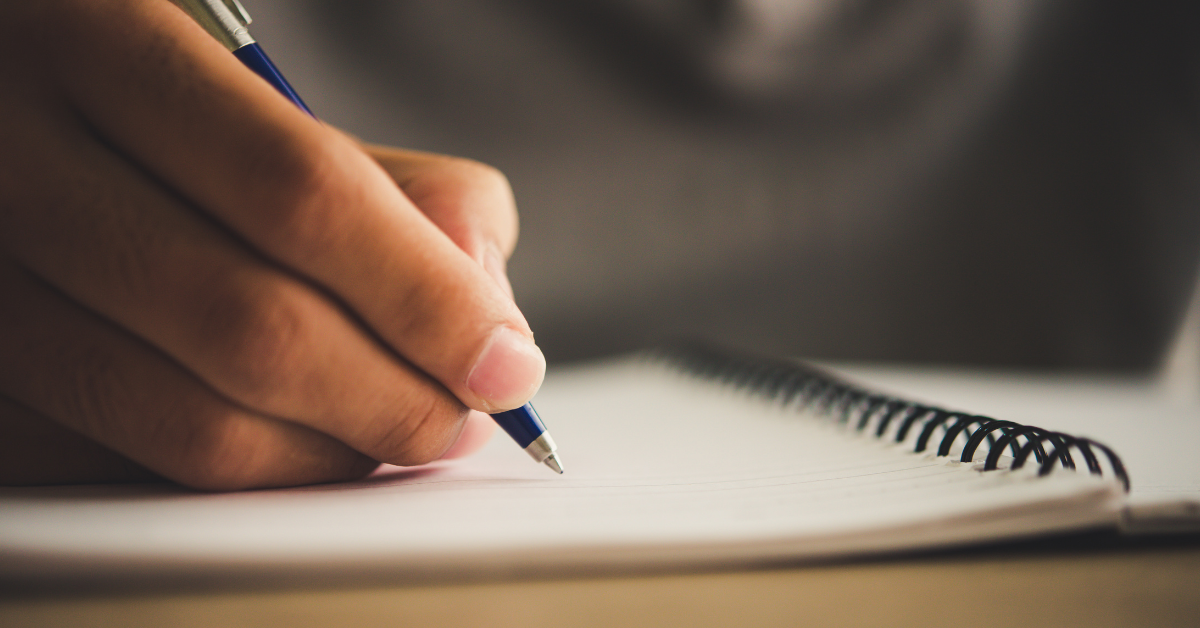 Driving the Lamborghini: Productivity and the Power of Paper
Driving the Lamborghini: Productivity and the Power of Paper  5 take aways from the Compete Sports Diversity Summit
5 take aways from the Compete Sports Diversity Summit 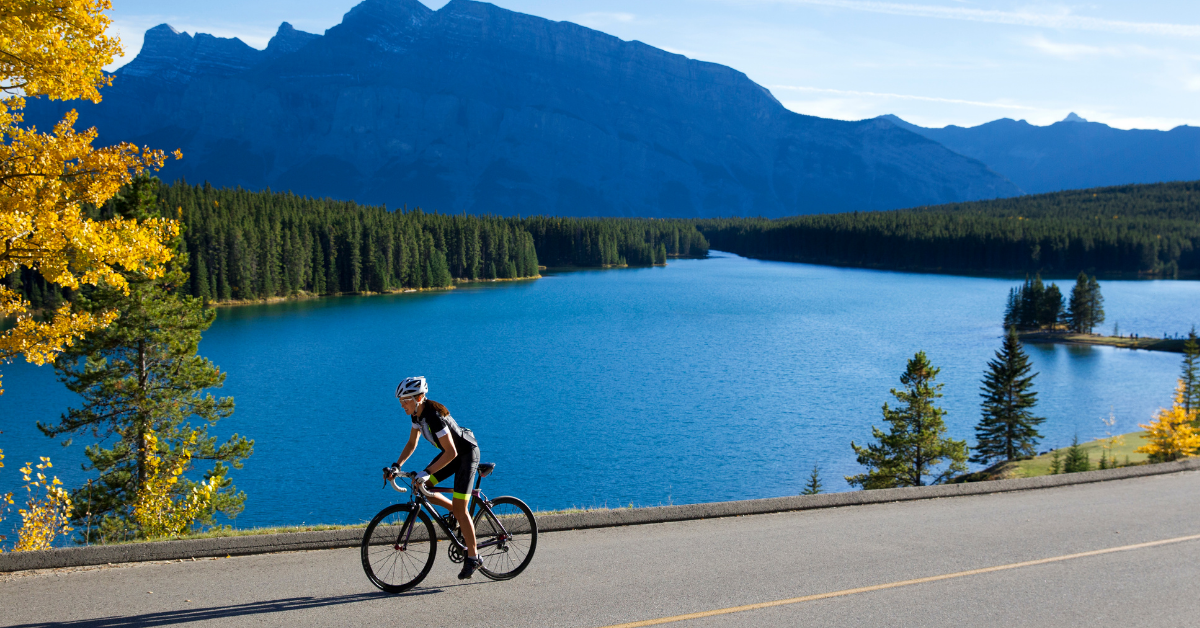 Simple Tips to Hone Your Bike Handling Skills
Simple Tips to Hone Your Bike Handling Skills 

